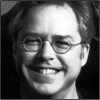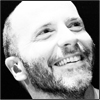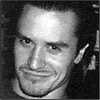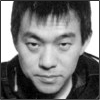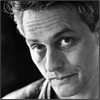NAKED CITY EPHEMERA |
Musician Testimonials |
|
These testimonials were transcribed from the book “Eight Million Stories – Naked City Ephemera” included within the box-set of Naked City’s Complete Studio Recordings. All text was initially encrypted in disjointed fonts, coloured white, and printed on see-through paper. We have made these musician testimonials available for all those Naked City fans who do not want to go blind trying to read them from the original book. With special thanks to those involved in bringing these testimonials together: John Zorn, Kazunori Sugiyama, Heung-Heung “Chippy” Chin, and all the musicians featured here.
|
|
“Timing. Luck. Music for me has so much to do with people connecting. John got us all together. Naked City was one of those jackpot moments where all of the right people hooked up at the right place, right time. I learned so much. Torture Garden. Absinthe. We played so much music. It was amazing. I feel so lucky to have been part of this band.” – Bill Frisell, Naked City Guitarist.
|
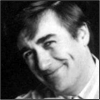 |
“What still blows me away about the whole Naked City experience is the shear scale of the achievement. I still can’t really digest that we were able to put together such a vast repertoire so quickly and painlessly… I’ve never been involved in anything comparable, and with such incredible players. I am smiling just thinking about it.” – Fred Frith, Naked City Bassist.
|
|
“I loved being in Naked City… Challenging in every way? Yes! But what a team… Five guys (with later additions of Eye and Patton) who all play their asses off, doing whatever it took to make John’s vision of music come to life. A lot of work resulting in a real model of trust and support…” – Joey Baron, Naked City Drummer.
|
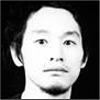 |
“Sleep and scream… except for our time on stage. I was pretty much asleep throughout the Naked City tours. And I could never tell whether I was screaming or dreaming… It was a bizarre experience.” – Yamatsuka Eye, Naked City Vocalist.
|
|
“This music was both a teacher and playground for me… and it altered my universe like a meteor falling from the sky. This band made the rest of the world sound fat and lazy! They spoke to me in a language I understood, sent me back to the drawing board and changed who I am.” – Mike Patton, Naked City Vocalist.
|
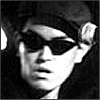 |
“Naked City was not only music, but also a catalyst for New York City… Many Japanese avant/underground musicians respect Naked City. Naked City was the compass for all the fuzzy people in the world.” – Yamamoto Seiichi, Boredoms.
|
|
“In the early Nineties, Naked City and Boredoms smashed and destroyed a Tokyo that was smeared with the sh*t of bubble economies! Although I was just a poor man, I too was completely destroyed. I would be a very different person if Naked City hadn’t existed.” – Otomo Yoshihide, Ground Zero.
|
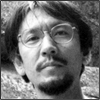 |
“I really enjoyed playing John’s Naked City compositions in the Japanese Torture Garden band [Imahori/Kimoto/Eye/Yoshida], and I learned a lot… Especially playing those pieces from memory! I can’t believe how John can continue to make such a huge number of compositions…” – Yoshida Tatsuka, Ruins.
|
|
“If today people accept that the hard core band is at least as important a medium for serious composition as the symphony orchestra, we can thank John Zorn and Naked City. What? You mean they don’t accept it. Morons.” – Marc Ribot, Los Cubanos Postizos.
|
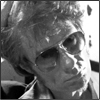 |
“Wide awake. Wide open. This music vibrated thru me and breathes and pulses and spasms in a mind blowing atomsmash: It hurts in a good way. Shattering euphoria. Eight million stories.”– J. G. Thirlwell, Foetus.
|
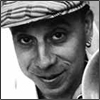 |
“Naked City was ubiquitous during their existence that a lot of my memories of them melt into general memories of that time in NY. The band evolved into a perfect forum for John’s quick-genre-change compositions. It was almost like the John Kirby Band -tight, well-crafted arrangements, short and easy to digest, sonically and rhythmically very much of its time, and played with great technique and ferocity… The music sounded incredible.”– Steven Bernstein, Sex Mob.
|
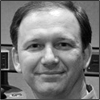 |
“When I first met John in 1989 we were putting the final touches on the original mastering of these Naked City CDs. There were rules back then about how loud a CD was supposed to be and all of the mastering engineers simply followed these rules. Going “over” the limit could get you fired or your CD rejected by the plant with great embarrassment. John was the first artist I met that asked “Why can’t we go over the limit?” He wanted these songs to be in your face and loud. So we found ways to make them louder. Naked City CDs were the loudest of them all… They were the first to go over the acceptable limits. It wasn’t until years later that rock and hip hop producers started asking to have their CDs made this loud… But Naked City was there first.” – Scott Hull, Sound Engineer.
|
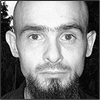 |
“My first encounter with John Zorn was meeting him backstage at a Napalm Death concert in Tokyo, August 1989. I was introduced to him via Martin Nessbit, the Earache Records rep. We spoke briefly about working one day and passed addresses. I then returned to the U.K. and treated myself to my first John Zorn experience, Spy Vs. Spy – blasting wicked madness using two drummers, two saxophones and bass. Later that year Martin told me he was releasing Torture Garden on Earache, and he gave me an advance copy. My first Naked City experience blew me away. Micro-composed pieces played with great accuracy and fire topped off by a class screamer – Yamataka Eye. Manic doss.” – Mick Harris, Napalm Death.
|
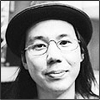 |
“Back in the day, when the separation of music from its particulars was killing me, these pieces were strong medicine. I was trying to reject music, but when I heard this, I thought “if music is really dead, why not kill it further?” To become aware of the dead, as the rapper says, f*ckin’ walk again. In a way, the systematic violation of tones, which constitutes the project of imperialist compositions, has been complete for a long, long time. There’s a story about celestial musician Narada who beheld, during a walk with the Lord Rama, so many horribly mutilated corpses: “these are the ragas that you have massacred in your lifetime.” On the other hand, what we have here, Beethovenian abstractions which kept going, which quilt simulations together with, from time to time, music, stated positively by some fools, an architect, a celestial poet and a couple magicians, turns the surfaces of abstractions in on themselves; something spiritual , so to speak, shines through the parade of simulations. The violence of these pieces is no more significant than the violence of any other compositions. What is really good is that these have taken up the mutilated, the wounded, faced them directly and at least for me, let a great healing in music begin.” – Eyvind Kang, Secret Chiefs 3.
|
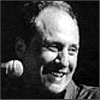 |
“Spring 1989. Paris… My only gig with Naked City: subbing for Wayne. Falling into the middle of a phenomenon. So much music, so many cues! It went by like a dream. The intensity of those couple of hours. The focus of each piece. The leaping over the quick changes. The genre jumping. The specificity of this new concept of virtuosity was not so new to me, after having worked on Spillane, Godard, and Cobra. But this was still different: more concentrated, more atomized, and the mastery of those four! The importance of this has usually been described more in sociological than musical terms. But in fact the influence in terms of the requirements of one’s musical arsenal could be the subject of some interesting writing… Naked City raised the bar as far as how many languages an improvisor had to speak in, and how fluently. The Torture Garden music remains some of my favorite. Material which on the surface seems so purely visceral, sculptured so elegantly while maintaining its raw emotional core. Miraculous.” – Anthony Coleman, Downtown Music Collaborator.
|
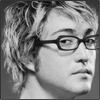 |
“When I was seventeen I used to take the train to Columbia University every morning listening to Bitches Brew and drinking coffee. It was clear to me at the time that I was the coolest person in the world for doing this. To make myself feel even cooler, after school I would sometimes go all the way downtown to a little fire-hazard of a club, called the Knitting Factory to see if I could catch the legendary John Zorn playing in any one of a multitude of experimental ensembles. I had been turned onto a band of his called Naked City by my high school music teacher, called Mr. Bender. Bender had given me a cassette tape featuring a black and white photo of a bloody corpse on it’s cover, which used to terrify me so much that I would turn it face down whenever I listened to it, only to be terrified again by the music that was coming out of my speakers. It made Bitches Brew seem like a children’s lullaby. Bender had bragged “I used to watch Zorn playing saxophone reeds into bowls of water in the the early Eighties.” This stuff is like pop music in comparison. Well to make a long story long, Naked City replaced Bitches Brew as the soundtrack to my life as a teenage musician in New York. They represented something completely original that not only contained in it what I perceived to be the essence of the new New York avant-jazz scene, but, also gave me a feeling that music in general was getting cooler. It seemed that music would no longer have to be genre-specific. Given the music scene today, this may have been a misconception, but at least I have the memory of that feeling. Perhaps one day, John’s music will succeed in annihilating the grotesque ocean of superficial garbage that pollutes our world today. Until then, dope springs eternal.” – Sean Lennon, musician, son of John Lennon and Yoko Ono.
|

